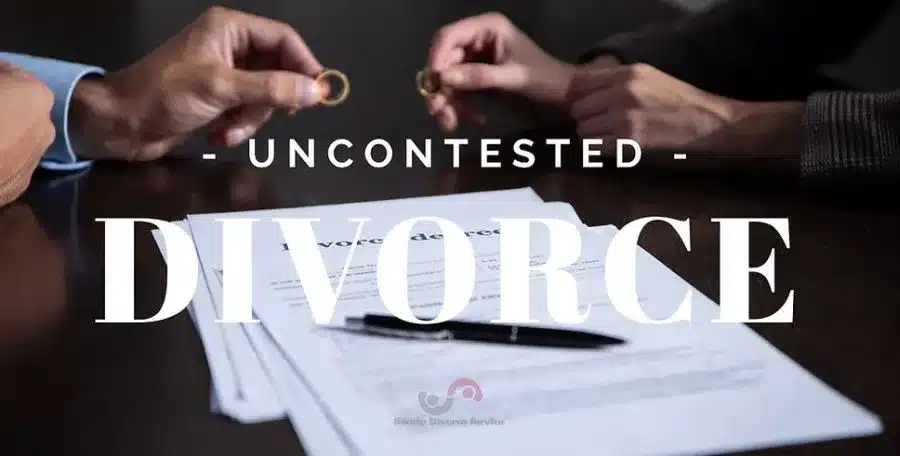A default judgment in divorce occurs when one spouse files for divorce, serves the paperwork to the other spouse, but the other spouse fails to respond or participate in the process by the legal deadline. This situation can dramatically affect the outcome of the case because the court may grant the divorce—and the relief requested by the filing spouse—without any input from the non-responding party.
In Texas, for example, the responding spouse generally has 20 days plus the following Monday to file an answer. If they don’t, the petitioner (the filing spouse) can request the court to enter a default judgment. Other states have similar timeframes.
Below, we’ll explore what a default judgment means, how it can arise, why it matters, and practical tips to avoid—or strategically use—a default judgment in divorce.
✨ How Does a Default Judgment Happen in Divorce?
Here’s how the process typically unfolds:
✅ Filing the Petition:
One spouse files a petition for divorce and asks the court to grant certain orders, such as property division, custody, or spousal support.
✅ Service of Process:
The filing spouse must properly serve (deliver) the divorce papers to the other spouse.
✅ Response Deadline:
The responding spouse has a limited period—usually about 20 to 30 days—to file a formal answer or response.
✅ Failure to Respond:
If the deadline passes without a response, the petitioner may file a Motion for Default Judgment.
✅ Hearing and Judgment:
The court will often schedule a hearing. The petitioner may need to prove that service was done correctly and that the requested orders are reasonable. If the court is satisfied, it grants the divorce and all the requested relief.
Why Default Judgments Matter
A default judgment isn’t just a rubber stamp—it can have serious consequences:
- Property Division: The court may award property as proposed by the petitioner.
- Child Custody: The petitioner may receive the custody arrangement they requested.
- Child Support and Alimony: Support may be ordered in the amounts requested.
- Debt Allocation: The court may assign debts as proposed, potentially disadvantaging the non-responding spouse.
Because of these consequences, default judgments should never be taken lightly.
Tips for Avoiding an Unwanted Default Judgment
If you are served with divorce papers, here’s how to protect your rights:
✅ Respond Promptly:
Don’t ignore the paperwork. File an answer before the deadline.
✅ Seek Legal Advice:
Even in uncontested divorces, professional guidance can prevent costly mistakes.
✅ File an Extension (If Needed):
If you need more time, you may be able to file a motion requesting additional days.
✅ Keep Contact Information Updated:
Ensure the court has your correct address so you receive all notices.

Can You Set Aside a Default Judgment?
In many states, you can file a Motion to Set Aside Default Judgment if you act quickly and have a valid reason, such as:
- Improper service (you were never properly notified)
- Excusable neglect or mistake
- Other good cause recognized by the court
Courts have strict deadlines for these motions, often 30 to 90 days from when the judgment was entered.
🔍 Tips If You’re the Filing Spouse
If your spouse does not respond:
✅ Follow Court Procedures Exactly:
Default judgments can be overturned if service or procedure wasn’t proper.
✅ Be Fair:
Requesting unreasonable terms can make a judge less likely to grant all your requests.
✅ Document Everything:
Keep records of attempts to communicate and serve documents.
❓ FAQs About Default Judgments in Divorce
💡 What happens if I ignore divorce papers?
The court may grant your spouse everything they asked for by default. This includes property division, custody, and support orders.
💡 Is a default judgment final?
Yes, but you may have limited time to ask the court to set it aside.
💡 Can my spouse still negotiate with me after default?
Sometimes. You can still reach a settlement, but it may require additional motions or agreements to modify the judgment.
💡 Does a default mean I automatically lose everything?
Not always. The judge still must find the requested terms reasonable and in the best interest of any children.
Final Thoughts
Default judgments can either be a useful legal tool or an unfortunate outcome, depending on your role in the case. If you are served with divorce papers, never assume you can ignore them without consequences. Prompt action and professional guidance can protect your interests and prevent surprises.
✅ Get Help with Your Texas Divorce Today
At Ready Divorce Service, we simplify the divorce process so you can move forward with confidence. Whether you’re facing a default judgment or pursuing an uncontested divorce, our service is fast, affordable, and tailored to Texas law.
Serving clients in:
📞 Call us now at (800) 432-0018
💻 Or contact us online to get started today.
No court battles. No hidden fees. Just results you can count on.




